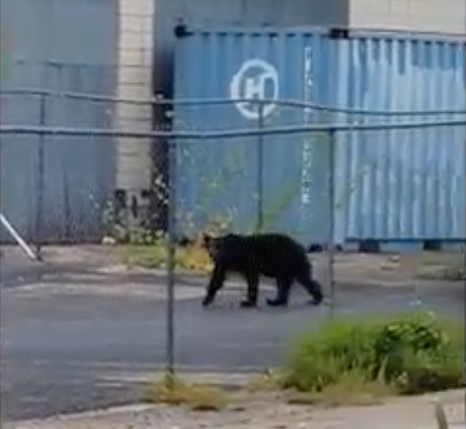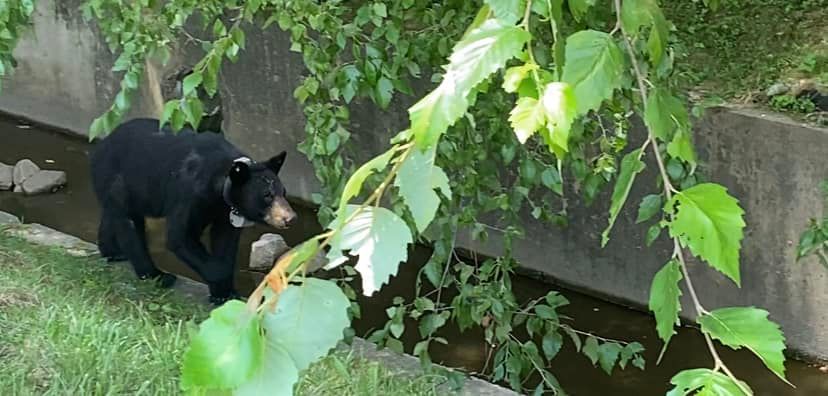
The Gainesville Police Department sent out a warning to visitors in the downtown area this weekend, to not feed the bear. That’s right – the bear.
‘No need to call 911’
On Saturday afternoon, July 30th, the police department posted photos of a bear wearing a tracking collar walking past a building and climbing a fence.
Michelle Griffin posted a video her husband captured showing the bear running behind a fenced-in area off Atlanta Highway. Maisie Lela also spotted the bear near a drainage ditch. With sweltering temperatures in the 90s, the ditch may have served as a useful watering hole.
Police took to social media to let people know they are aware of the bear sightings and to inform the public there’s “no need to call 911.”
“The bear is being tracked by wildlife management and will eventually find its way home,” the post says. “We are fortunate to live in beautiful North Georgia amongst the wonderful wildlife.”
Bear sightings are not uncommon in this region, but they do attract attention, particularly when they’re spotted on city streets and in neighborhoods, or, in the case of one Now Habersham reader, in their vehicle!
That happened to Carrie Watts around this time of year four years ago. While visiting with a home health patient, Watts looked out the window to see a bear inside her van.
“I’ve seen bears on the side of the road and the edge of the woods, but not in my van eating my lunch!” Watts said at the time. “It was pretty wild. It’s funny now, but it was scary then.”
Bear-wise lessons from Jellystone Park and the web
Hundreds of social media users shared the Gainesville bear sighting post and several found the humor in it, posting old clips and new memes of the cartoon character Yogi Bear.
Yogi, the incorrigible bear known for stealing picnic baskets from unsuspecting visitors at the fictional Jellystone Park, added levity to the police department’s serious message, not to feed the bear.
“When bears have access to human-provided foods, regardless of the source or the intent, they will take advantage of them, and that often leads to further problems,” says state bear biologist Adam Hammond.
Hammond works with the Georgia Department of Natural Resources’ Wildlife Resources Division. The agency offers an education program called BearWise which was developed by state bear biologists and is anchored by the website www.bearwise.org. The site offers specific, detailed, high-quality information to help humans live responsibly with bears and keep bears wild.
The black bear is the only bear found in Georgia and is the most common in North America. In the 1930s, black bears were nearly eradicated in Georgia due to unregulated hunting, illegal harvest – including the killing of bears as “vermin,” and large-scale habitat loss.
According to the Georgia DNR, sound wildlife management practices have restored Georgia’s black bears to a thriving population estimated at 4,100 bears statewide.










